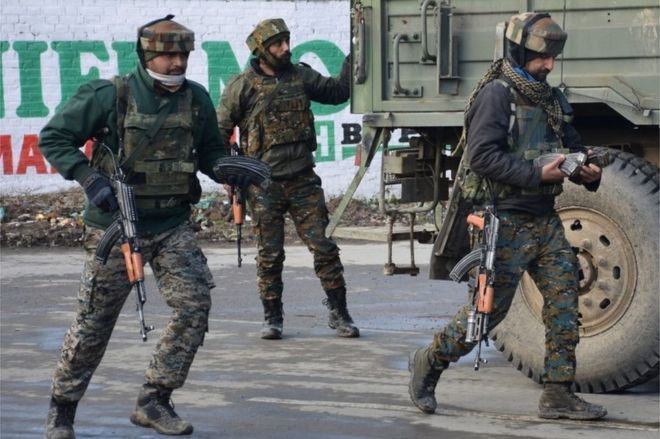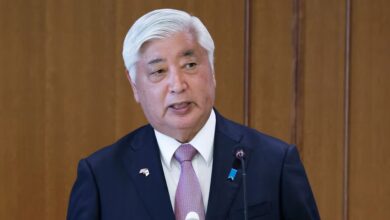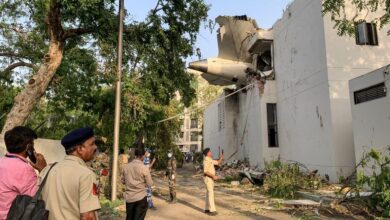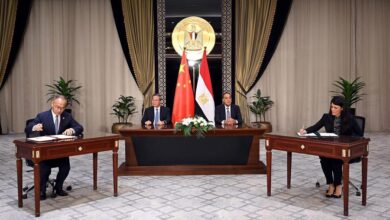
Pakistan said Wednesday it shot down two Indian warplanes in its airspace over disputed Kashmir, in a dramatic escalation of a confrontation that has ignited fears of an all-out conflict between the nuclear-armed neighbors.
One Indian pilot was captured, a Pakistani military spokesman said, adding that one aircraft had fallen in Pakistani-held Kashmir, while the other fell on the Indian side of the heavily militarized de facto border dividing the Himalayan territory.
Indian sources confirmed Pakistani fighter jets had violated airspace over Indian Kashmir, but said they were forced back over the LoC, and there was no immediate response to the claim the planes had been shot down.
The incident is the latest in a dangerous sequence of events between the two countries, whose ties have been under intense strain since a February 14 suicide bombing in Indian Kashmir that killed 40 troops.
New Delhi had promised to act, and on Tuesday its warplanes flew into Pakistani airspace and struck what it said was a camp of Jaish-e-Mohammed (JeM), the militant group that claimed the Kashmir bombing.
It was India’s first air strike on Pakistani soil since the neighbors fought a war in 1971 — when neither had nuclear weapons.
Islamabad, while denying the Indian strike caused any major damage or casualties, quickly vowed to retaliate, fuelling fears of a disastrous confrontation in South Asia.
“PAF shot down two Indian aircrafts inside Pakistani airspace,” military spokesman Major General Asif Ghafoor tweeted Wednesday.
“One Indian pilot arrested by troops on ground while two in the area,” he added, without elaborating.
The Pakistani foreign office also released a statement saying that the air force “undertook strikes” Wednesday — but said they were across the border, known as the Line of Control (LoC), in Indian Kashmir.
The foreign office did not elaborate on what it meant by “strikes” and did not mention shooting down planes.
It said the strikes were aimed at a “non military target”, adding: “We have no intention of escalation”.
Appeal against ‘escalation’
Earlier Wednesday, the Indian foreign minister sought to ease the situation by downplaying Tuesday’s strike, repeating Indian claims that it had been a pre-emptive attack on JeM as the group planned further assaults.
“India does not wish to see further escalation of this situation. India will continue to act with responsibility and restraint,” Sushma Swaraj said during talks in China with her counterparts from Beijing and Moscow.
The US, along with China and the European Union, have called for cooler heads to prevail.
“We encourage India and Pakistan to exercise restraint, and avoid escalation at any cost,” US Secretary of State Mike Pompeo said after speaking with his counterparts from both countries.
Pompeo added that he stressed to Pakistan’s foreign minister “the priority of de-escalating current tensions by avoiding military action, and the urgency of Pakistan taking meaningful action against terrorist groups operating on its soil.”
India had been vague over the exact location of Tuesday’s strike, with analysts suggesting it was signaling to Pakistan that it does not want an all-out conflict.
Both sides have said that Indian warplanes penetrated as far as Balakot, a heavily forested region in northwestern Pakistan near the border with Pakistani-administered Kashmir.
Balakot residents told AFP they heard explosions in the night, and that one person received minor injuries while no buildings were destroyed.
An AFP journalist who visited the site where the military and residents said the payload was dropped could see a large crater and trees snapped in half, and three mud houses, one with a collapsed wall, nearby.
Crisis for Khan
The confrontation represents the first major foreign policy crisis for Pakistani premier Imran Khan, who is believed to be close to the powerful military and who came to power last year vowing to seek dialogue with New Delhi.
In a sign of how quickly the situation could spiral, Pakistan’s military spokesman alluded to its nuclear arsenal Tuesday, saying that Khan had also convened a meeting Wednesday of the National Command Authority, the body which oversees its nuclear weapons.
Pakistan has denied involvement in the Kashmir bombing on February 14.
While India has consistently accused its neighbor of supporting extremist groups, Pakistan has equally vehemently denied any role in attacks in India and its only Muslim-majority state, Kashmir.
The Himalayan region has been divided between India and Pakistan since independence in 1947. They have fought two of their three wars over the territory.
Previously, the US and other members of the international community have acted to defuse tensions.
“If I were Washington, I’d be in overdrive making phone calls and signaling that it wants tensions to be de-escalated now,” said Moeed Yusuf, an expert at the US Institute of Peace in Washington.
“The risks of letting this play out are too great.”




